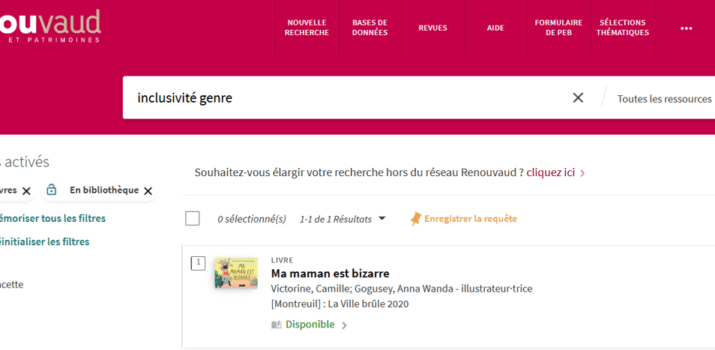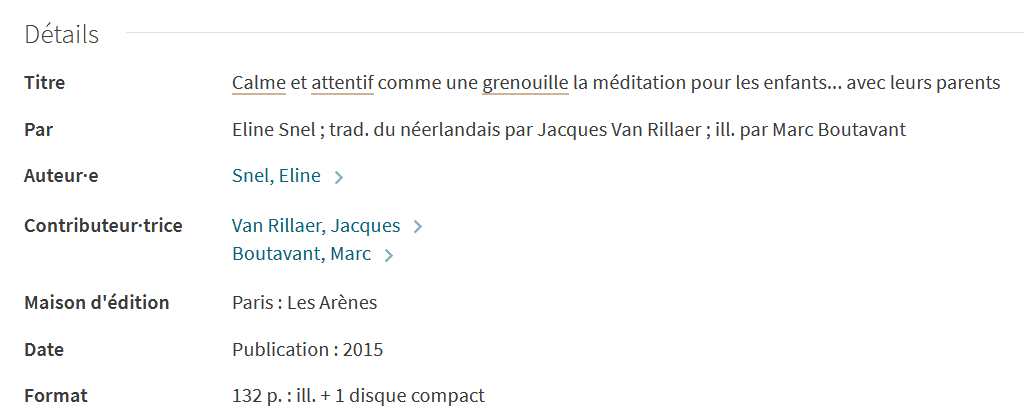Towards greater inclusiveness in the Renouvaud network


Gender issues are very much in the news. According to Bibliosuisse’s Code of Ethics, libraries have a duty to promote integration and combat exclusion, and therefore also to get involved in these issues.
This is why the Renouvaud network has decided to carry out a survey on gender inclusiveness in 2022. The expert groups for lending and for the discovery tool then initiated an analysis of the content offered to users on Renouvaud interfaces. In particular, they began by identifying activities that required users to enter their gender. Next, all gendered terms in the discovery tool were identified. The content of communications sent to users by the Alma SIGB was also reviewed.
The results of this analysis were presented to the Renouvaud Council in May 2022, which decided that network interfaces should become neutral and inclusive wherever possible.
To achieve this, several actions have been taken since 2022. These include the use of common first names and the removal of the words “Madame, Monsieur” from emails sent to users. These changes enable people to choose how they want to be identified and named, regardless of the gender assigned to them at birth. It has also been made possible to use the “Indifferent” or “Other” options when entering one’s gender on the form used to register in one of the network’s libraries.
In the Renouvaud discovery tool, generic terms with masculine forms referring to users have been replaced by neutral terms. For example, the “Compte lecteur” link, allowing users to access their personal information, has become “Mon compte”.
On rare occasions, it has not been possible to adopt an epicene expression. In such cases, the mid-point has been used, as in the case of the labels “Author” and “Contributor”, which appear in the bibliographic information of resources in the Renouvaud search tool.

Communication aimed at professionals working in the network’s member libraries has also been adapted to be more inclusive and less gendered.
This work, which is still in progress, has enabled the network to make its own contribution to the inclusion of all publics in libraries. By analyzing and adapting existing services, we have also raised awareness of these issues among professionals. Naturally, this vision will also guide the design of future services.